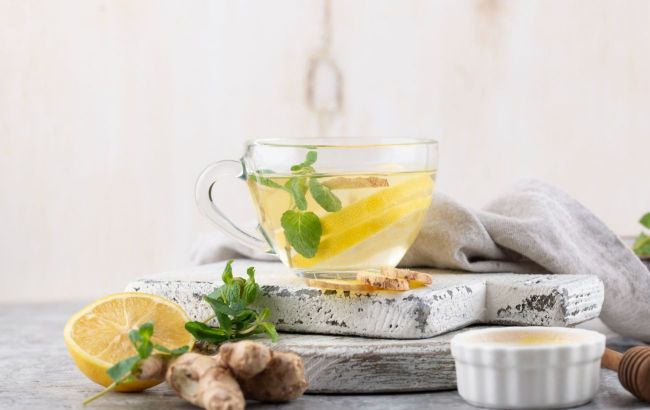Ginger tea: Healthy brew, but not suitable for everyone
 Who can be harmed by ginger tea (Photo: Freepik)
Who can be harmed by ginger tea (Photo: Freepik)
As soon as the cold season begins, many people switch to ginger tea. It indeed has a warming effect and is beneficial for most people, especially if enhanced with lemon and honey. However, it may not have the same positive effects for everyone, as it can seriously harm some individuals. Allergist Olha Tarnavska exclusively shares with RBC-Ukraine who should avoid ginger tea.
"Ginger is most commonly pulled out of the refrigerator for colds or the flu. Sometimes it may seem that ginger tea with lemon is just a widely advertised placebo, but the scientific community agrees with traditional medicine on this issue," says the doctor.
According to her, ginger root contains essential oils and vitamins that don't have a direct effect on pathogens (viruses and bacteria) but alter the immune response of cells to factors damaging the body's systems.
Who may be harmed by ginger tea
"Phenols and essential oils found in ginger irritate the stomach's mucous membrane. Fresh ginger root and beverages made from it are strictly contraindicated for patients with stomach ulcers, colitis, enterocolitis, gastritis, and other gastrointestinal diseases. Gingerol stimulates the production of bile, so people with gallbladder diseases should exclude ginger from their diet," explains Tarnavska.
She also notes that hypertensive patients can consume ginger if their blood pressure readings are normal.
"For elevated blood pressure, avoiding ginger tea is advisable. The plant may cause individual intolerance and allergic reactions, such as hives," warns the doctor.
It is worth mentioning that even people without the mentioned diseases should not eat too much fresh root. Excessive consumption can only be harmful, causing allergies, stomach cramps, and other unpleasant symptoms that ginger is supposed to combat.
Healthy individuals are advised to drink no more than 2-3 cups of ginger tea per day, as excessive consumption carries the risk of side effects from the root on health.
Earlier, we wrote about the products that most enrich the body with vitamin D.
This material is for informational purposes only and should not be used for medical diagnosis or self-treatment. Our goal is to provide readers with accurate information about symptoms, causes, and methods of detecting diseases. RBС-Ukraine is not responsible for any diagnoses that readers may make based on materials from the resource. We do not recommend self-treatment and advise consulting a doctor in case of any health concerns.

